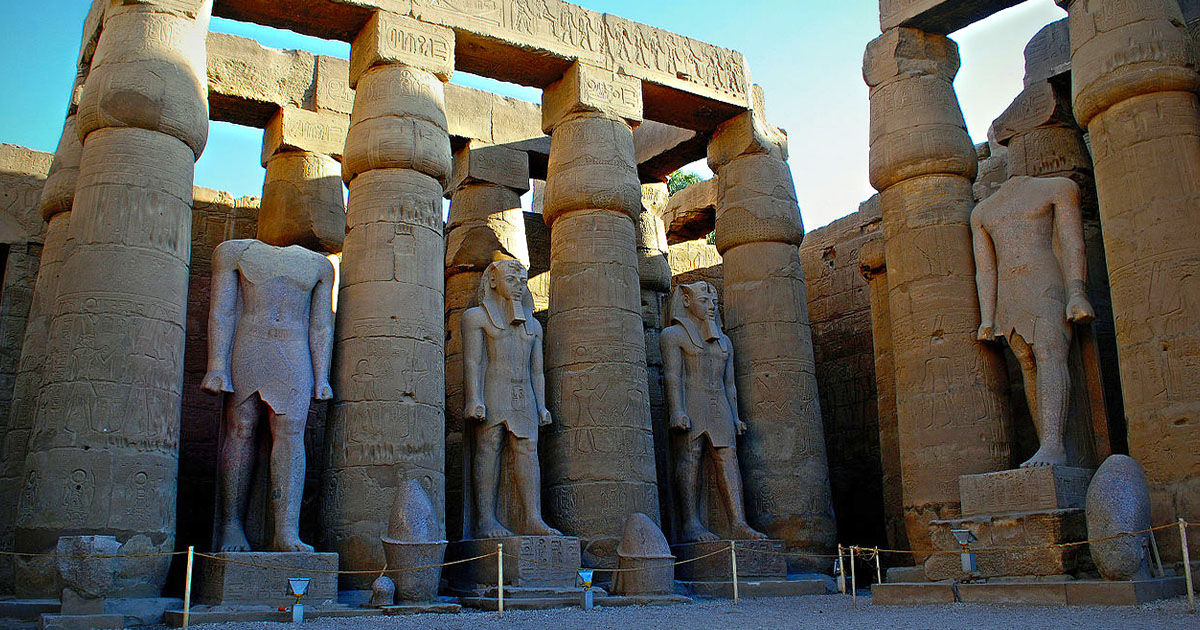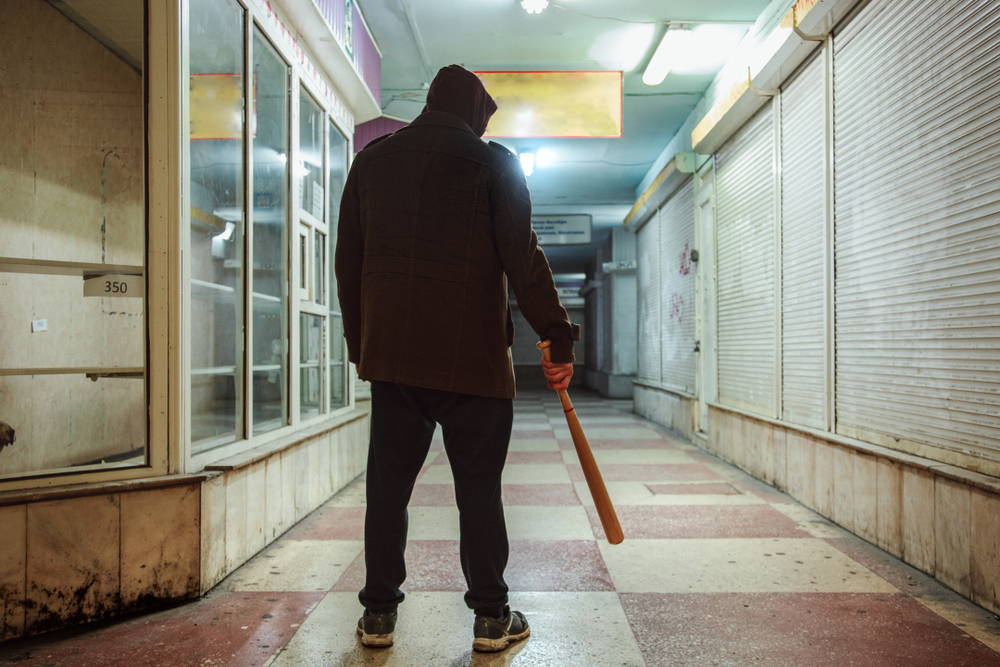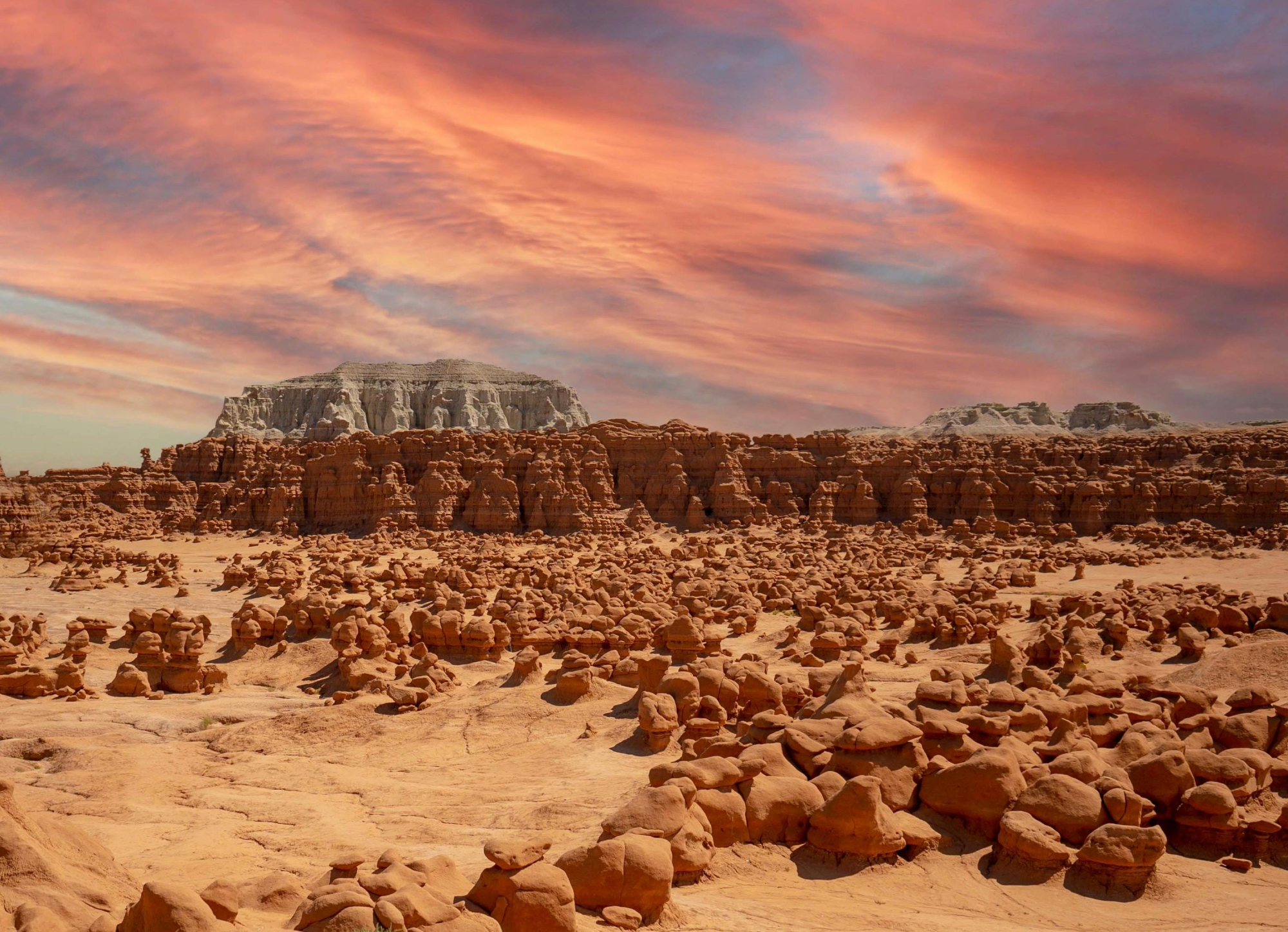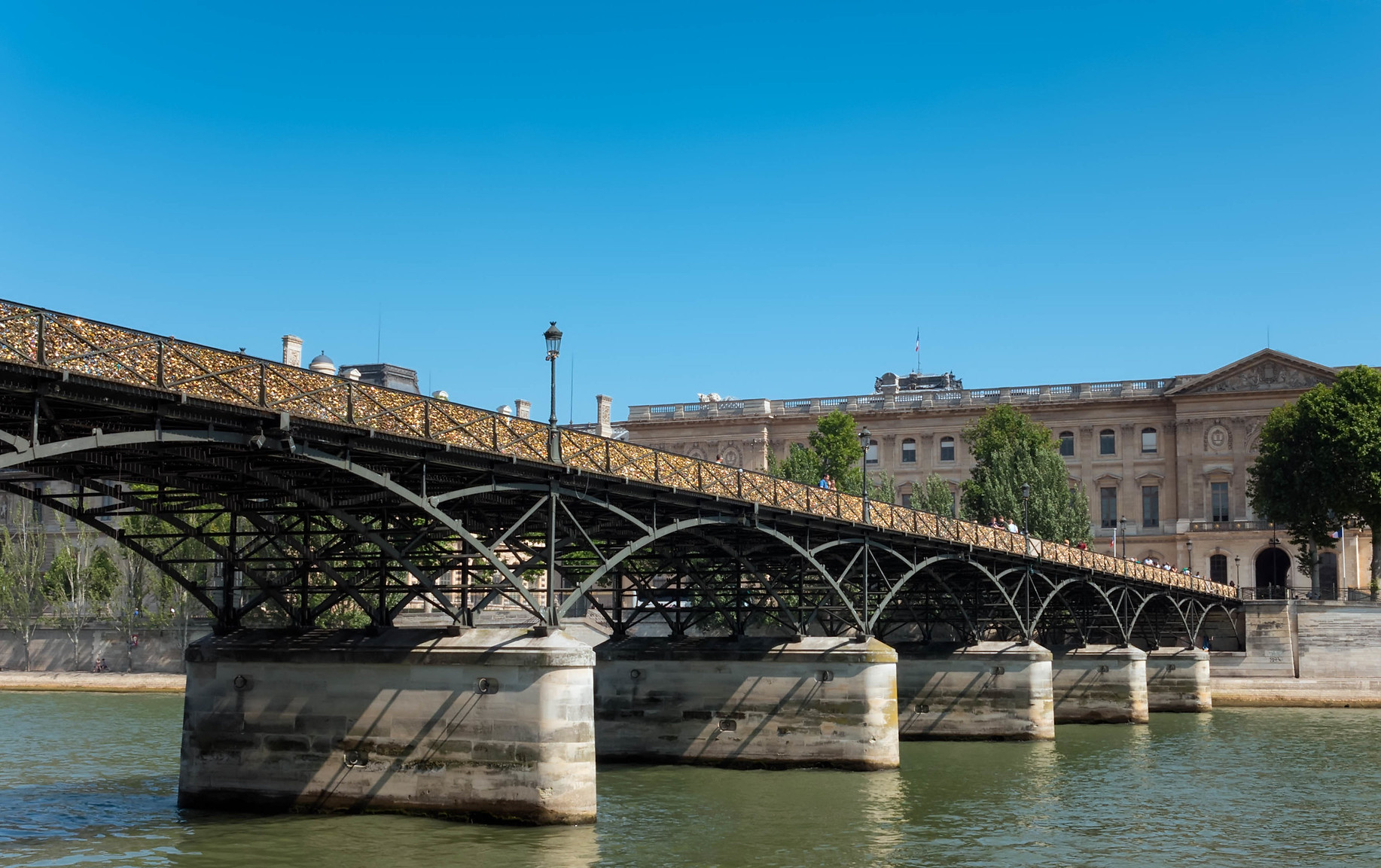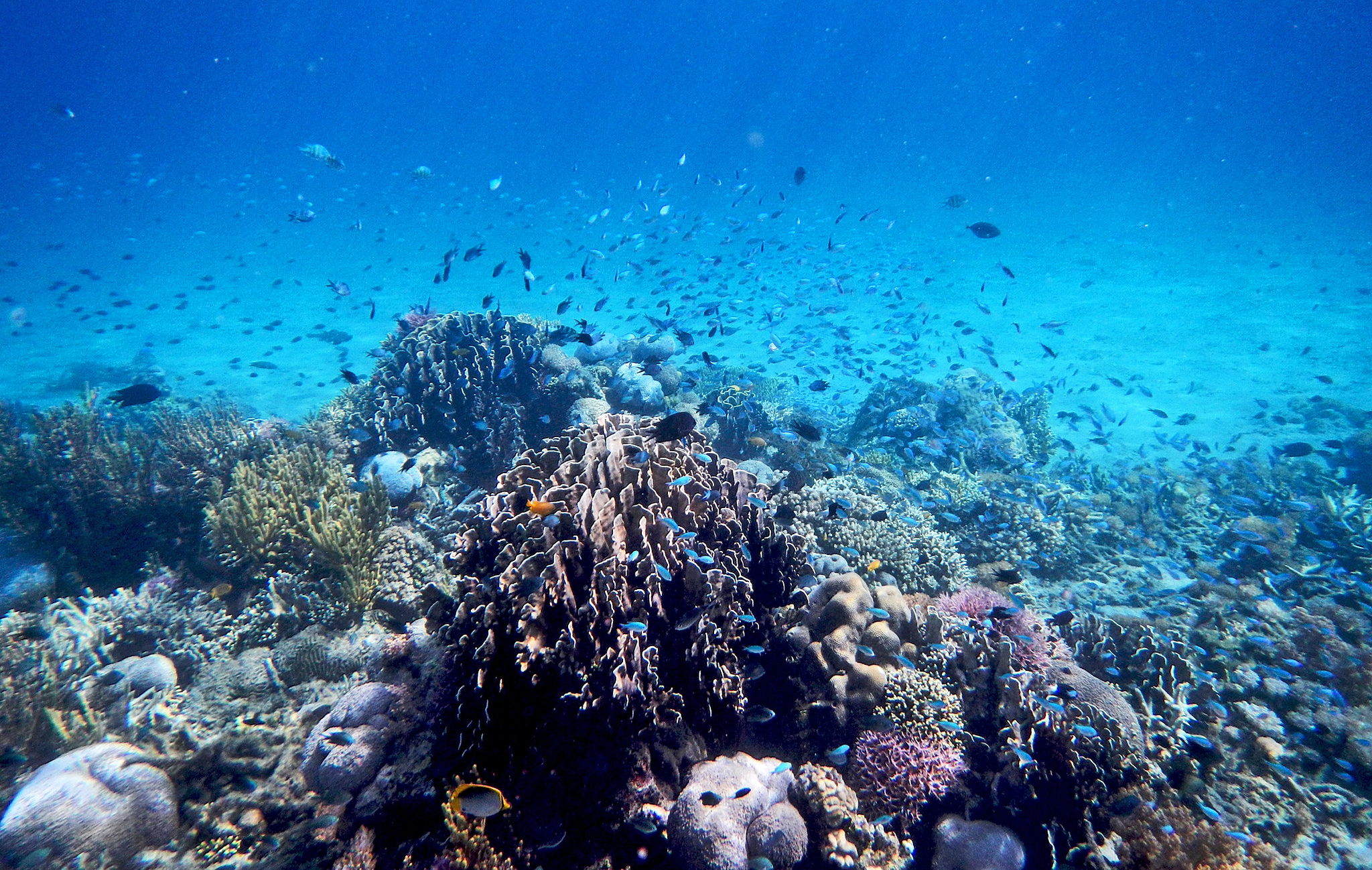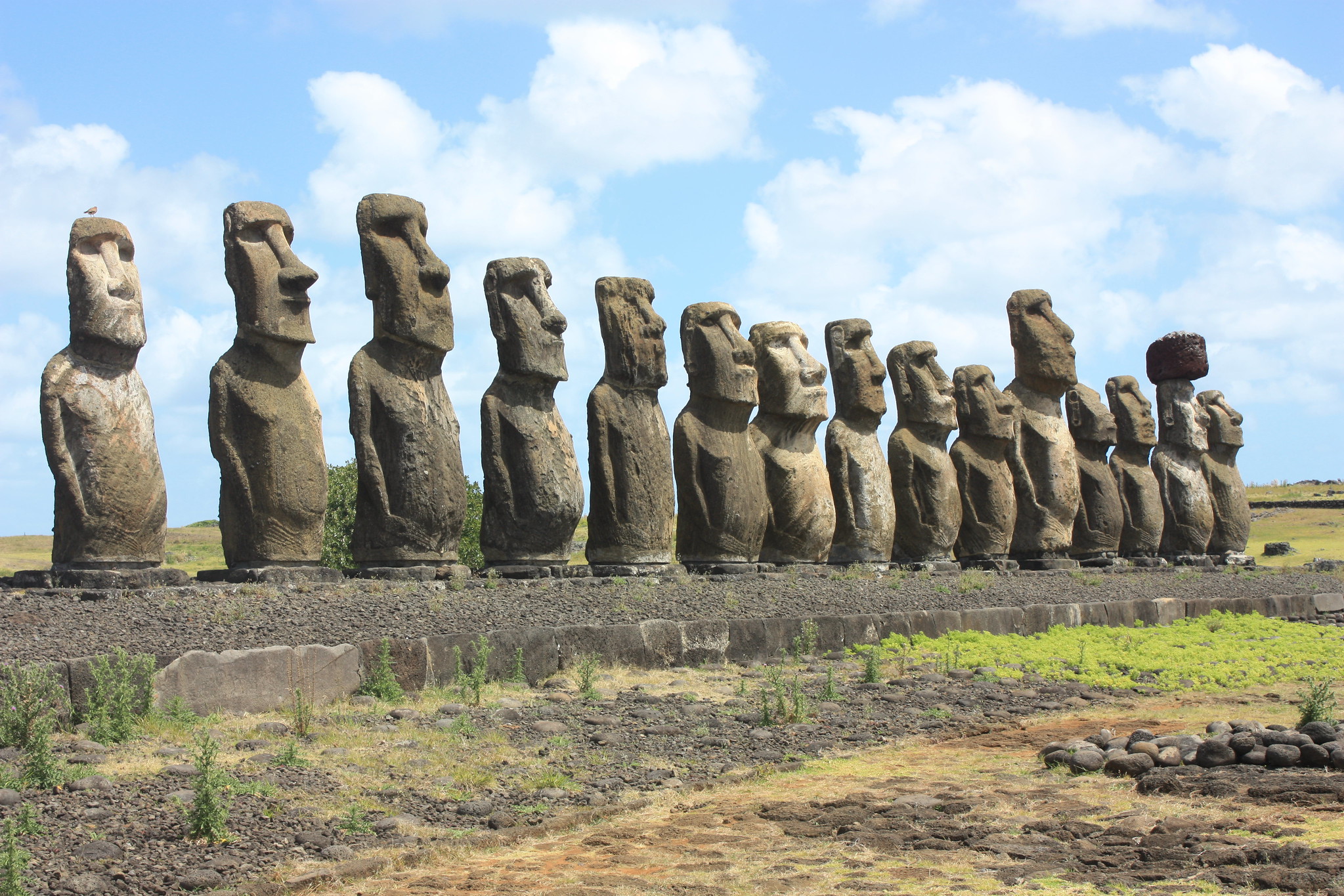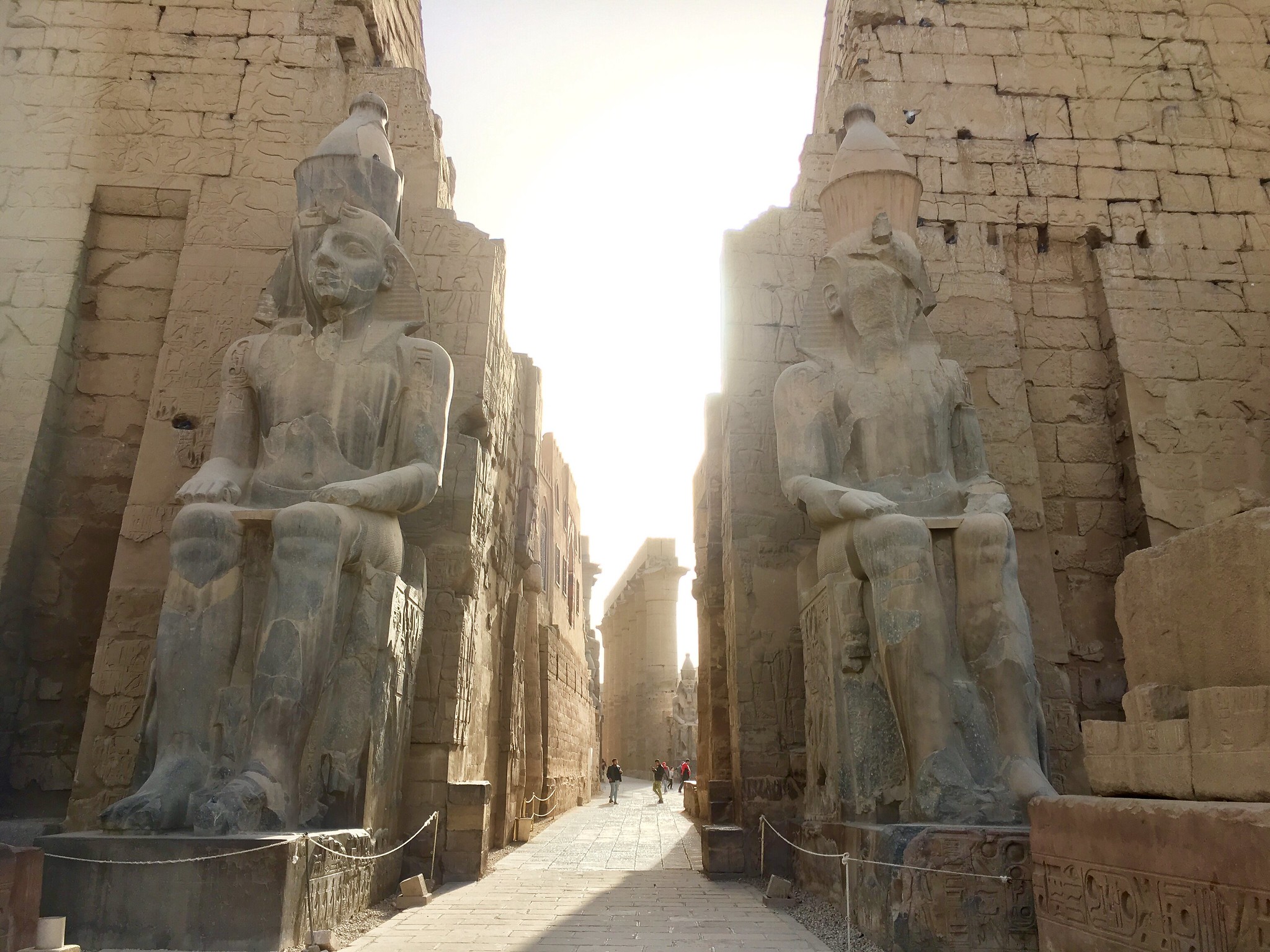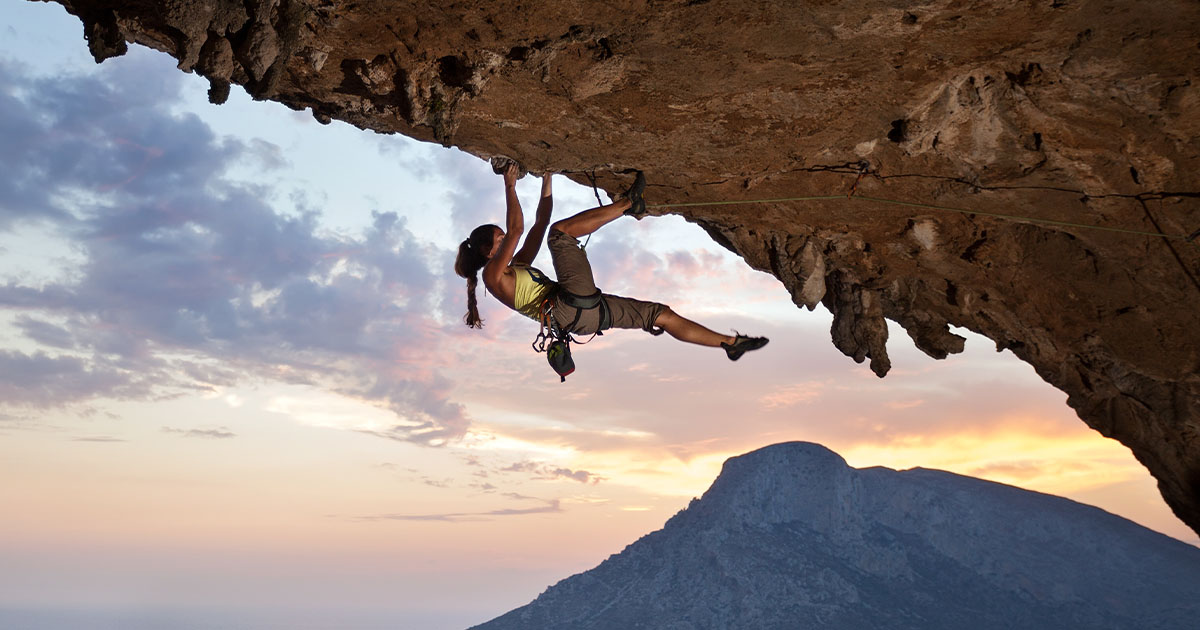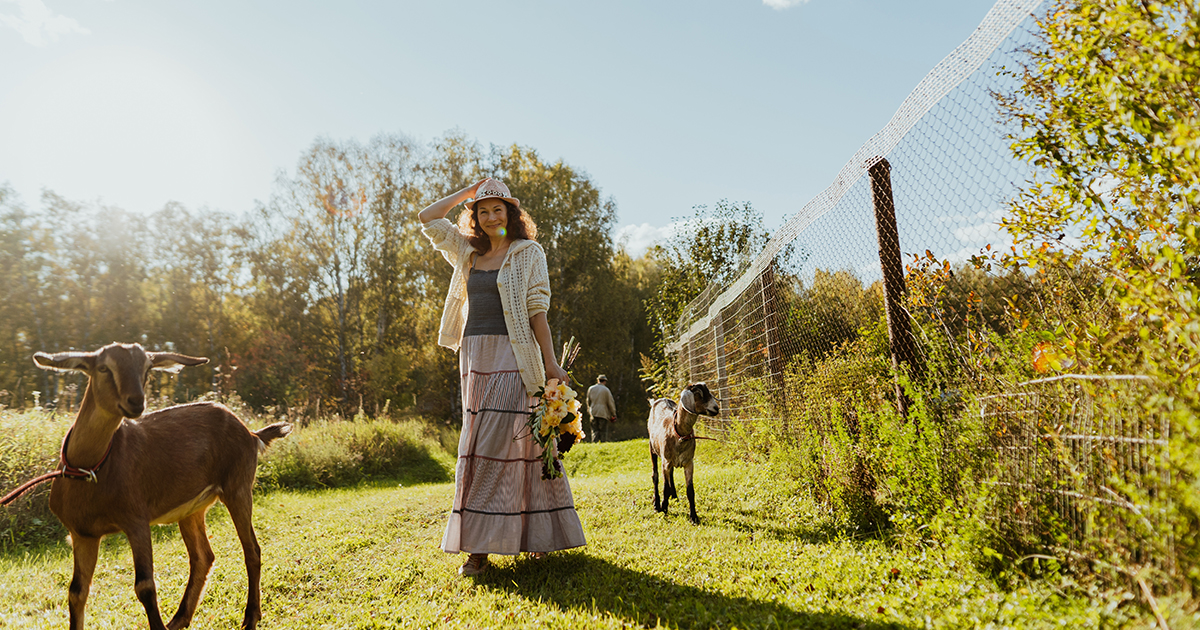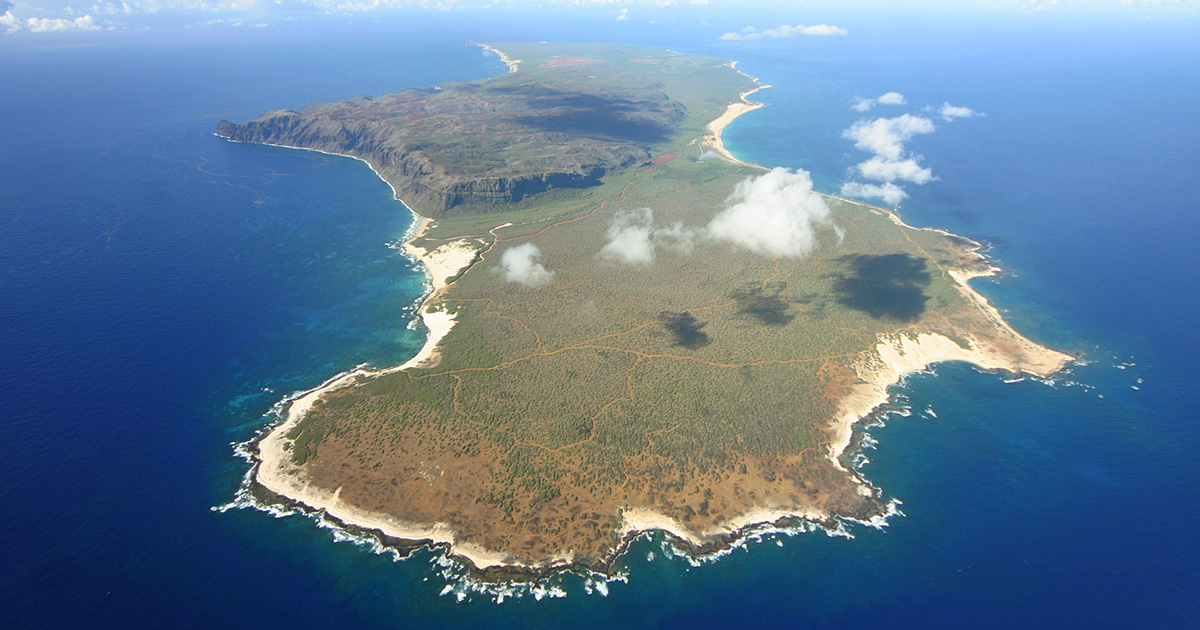Tourist Vandalism On Cultural Landmarks
Our beloved planet is home to countless natural wonders to marvel. But if climate change doesn’t pose enough threat to them, humans certainly do.
From carving their names into historical monuments and deliberately knocking down statues to crashing into irreplaceable natural wonders, here’s 14 specific times dumb tourists actually ruined iconic landmarks—and the prices they paid for doing so.
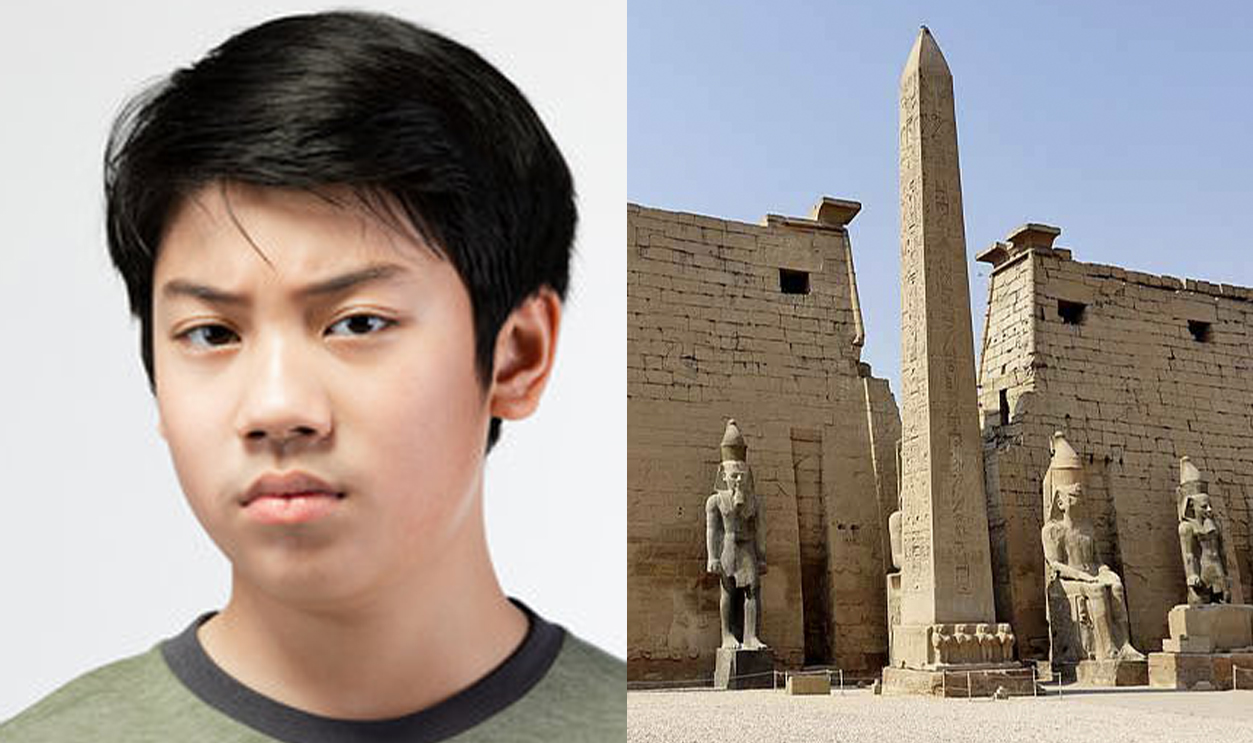
Duckbill, Oregon
Oregon’s Duckbill was a sandstone hoodoo rock formation at Cape Kiwanda State Natural Area. It was a common tourist attraction for many, many years.
Sadly, in 2016, the 18-million-year-old iconic rock formation was destroyed by a group of vandals who crossed the roped off area and deliberately pushed it over. The rock broke into pieces.
Their reason for the destruction was unbelievable.
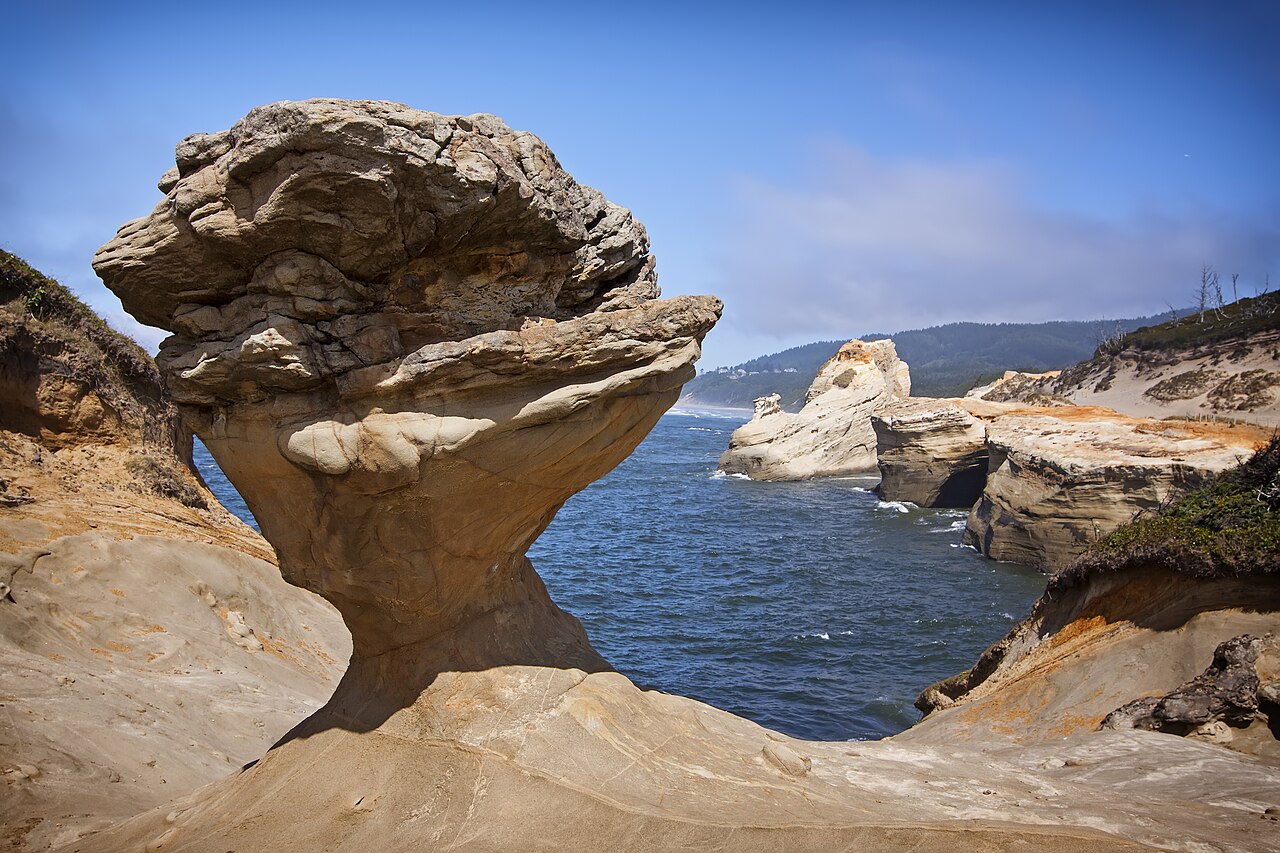 Steven Pavlov, Wikimedia Commons
Steven Pavlov, Wikimedia Commons
The Duckbill Vandals
Apparently, one of the vandals told a witness that they were destroying it was a “public service,” as they personally deemed the formation to be a safety hazard after a friend of theirs broke a leg climbing it.
The group fled the scene after noticing they were being recorded, and believe it or not, they were never caught.
The Tree Of Ténéré, Sahara
The Tree of Ténéré was a single acacia (Vachellia tortilis) that stood alone in the Sahara Desert. It was once considered the most isolated tree on Earth, and was believed to be about 300 years old—before a tragic event took it out for good.
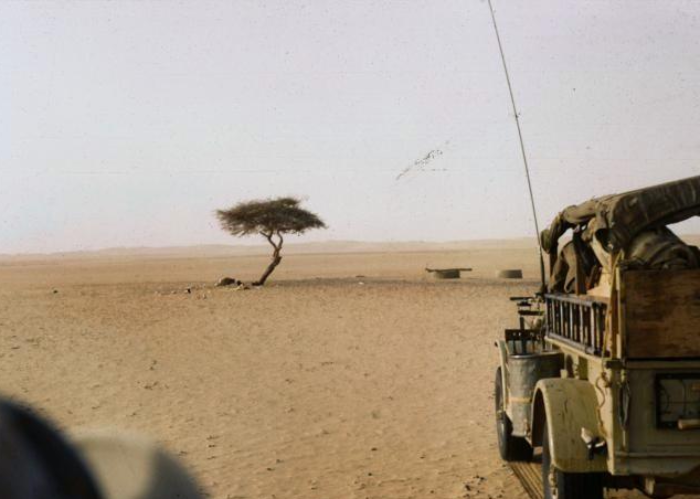 Michel Mazeau, CC BY-SA 2.0, Wikimedia Commons
Michel Mazeau, CC BY-SA 2.0, Wikimedia Commons
The Tree Of Ténéré Accident
In 1973, a Libyan truck driver—who had way too much to drink—drove his truck right into the tree, completely destroying the tree. The driver was most definitely charged with a number of offenses that night.
The government quickly scooped up what was left and put it in a museum. The tree was the last of a group of trees that grew in the desert back when it was less parched than it is today.
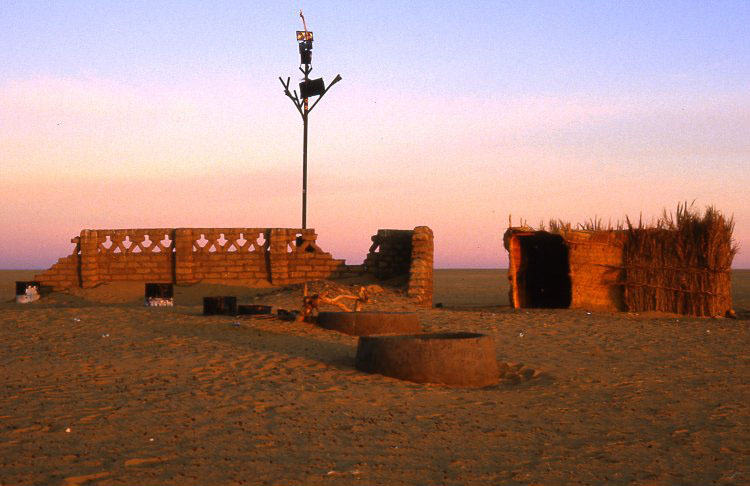 Holger Reineccius, CC BY-SA 3.0, Wikimedia Commons
Holger Reineccius, CC BY-SA 3.0, Wikimedia Commons
The Goblins, Utah
Goblin Valley State Park features thousands of hoodoos, locally referred to as “goblins,” and they’re popular with tourists. There are signs everywhere warning visitors to not touch the rocks—but as we know, not everyone listens.
The Goblins Vandals
In 2013, a delicately balanced hoodoo (that dated back 165 million years!) was purposely knocked over by a Boy Scout leader, while two other men watched it happen—one whom recorded a video and later posted it online.
Two men were charged as a result, and lost all credibility and involvement with the Boys Scouts Association.
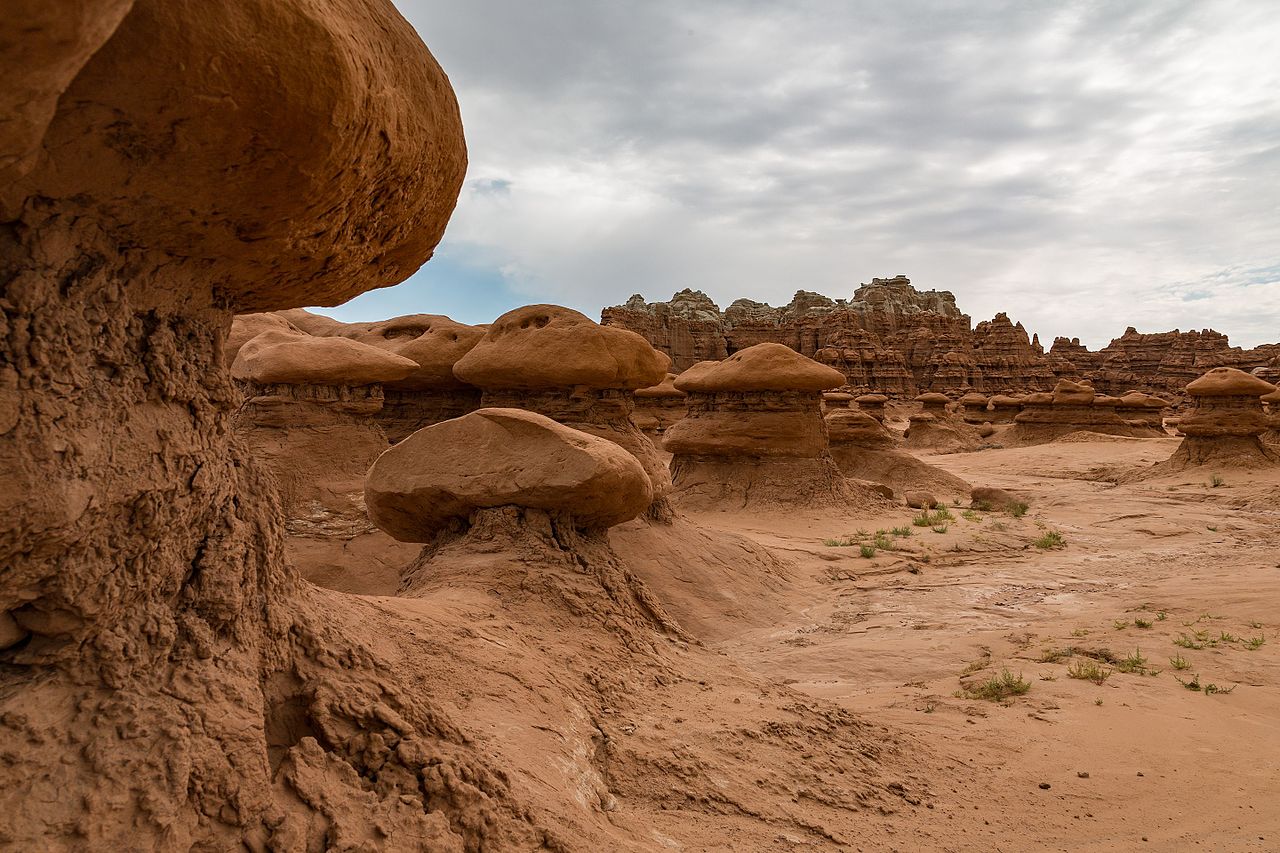 Tony Webster, CC BY-SA 2.0, Wikimedia Commons
Tony Webster, CC BY-SA 2.0, Wikimedia Commons
Isla De Sa Porrassa, Spain
This small island off the coast of Spain may be uninhabited, but it is frequently visited by tourists in the summer months, who like to swim and boat in the surrounding waters. Sadly, the island's untouched beauty, which had grown for hundreds of years, was destroyed in minutes—all because of two tourists.
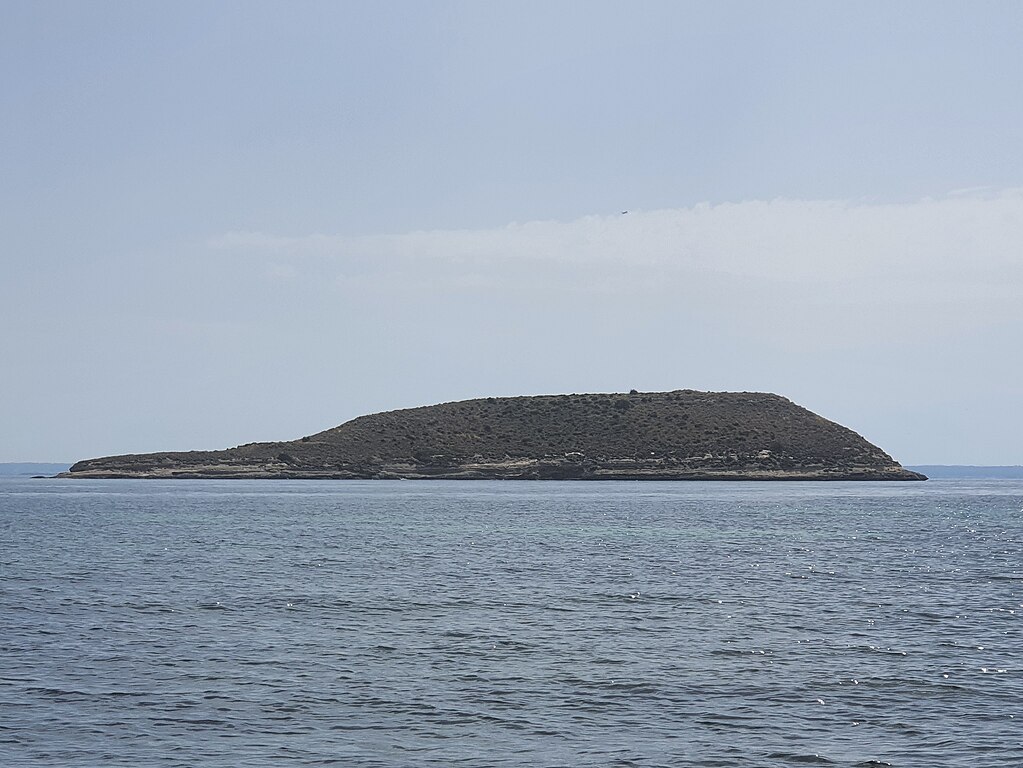 Reensen, CC BY-SA 4.0, Wikimedia Commons
Reensen, CC BY-SA 4.0, Wikimedia Commons
The Island Smokers
In 2015, two teenage boys accidentally lit a fire that burned up five acres of land on the small island. The major blaze was said to be the result of a smoldering smoke butt that ignited the surroundings in mere minutes.
The boys expressed remorse and were not charged.
 A.Savin, FAL, Wikimedia Commons
A.Savin, FAL, Wikimedia Commons
The Racetrack Playa, California
The Racetrack is a playa (dry lakebed) located in Death Valley National Park. It is said to be one of the most mysterious places on Earth—particularly because of its strange moving rocks that leave “racetrack” imprints.
It is strictly prohibited to disturb the rocks, or walk on the surface when it is wet, as it can take years for muddy footprints to disappear.
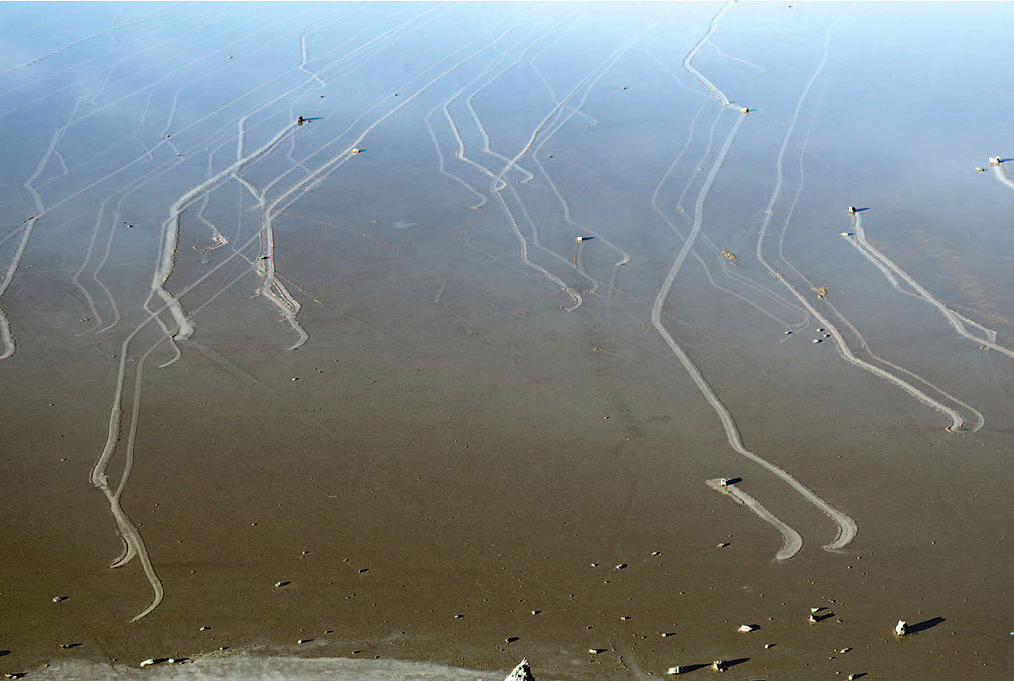 Richard D. Norris, CC BY 1.0, Wikimedia Commons
Richard D. Norris, CC BY 1.0, Wikimedia Commons
The Racetrack Driver
In 2016, a man severely ruined the playa by doing donuts on it in an SUV. He allegedly cut 10 miles’ worth of ruts into the delicate surface.
The man admitted that he was “out for a joyride.” He was definitely charged.
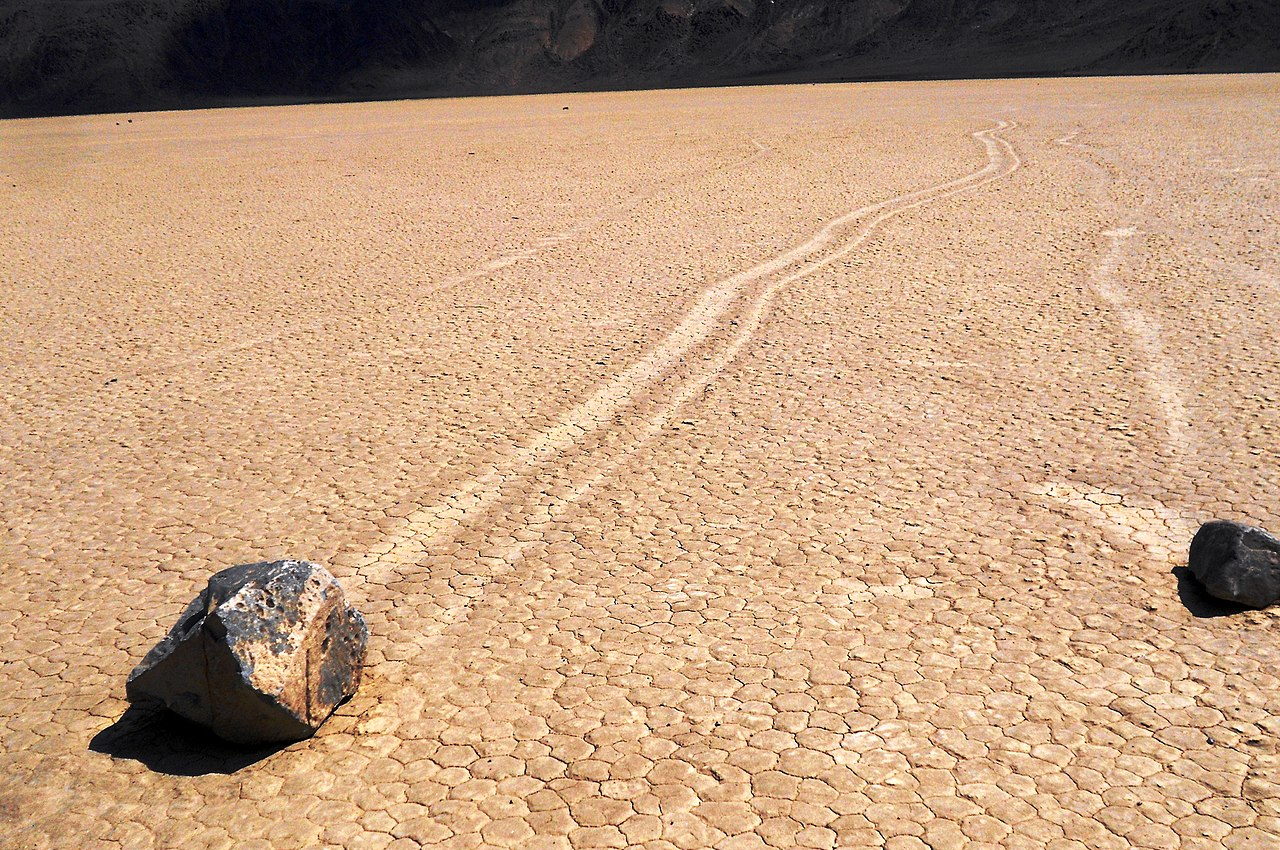 Raymond M. Coveney, CC BY-SA 3.0, Wikimedia Commons
Raymond M. Coveney, CC BY-SA 3.0, Wikimedia Commons
Pont Des Arts Bridge, Paris
The iconic Love Lock Bridge in Paris dates back to Napoleon times. Starting sometime around 2008, tourists began leaving padlocks with their initials locked to the bridge as a symbol of their love. But it was only a matter of time until the weight of the love came crashing down.
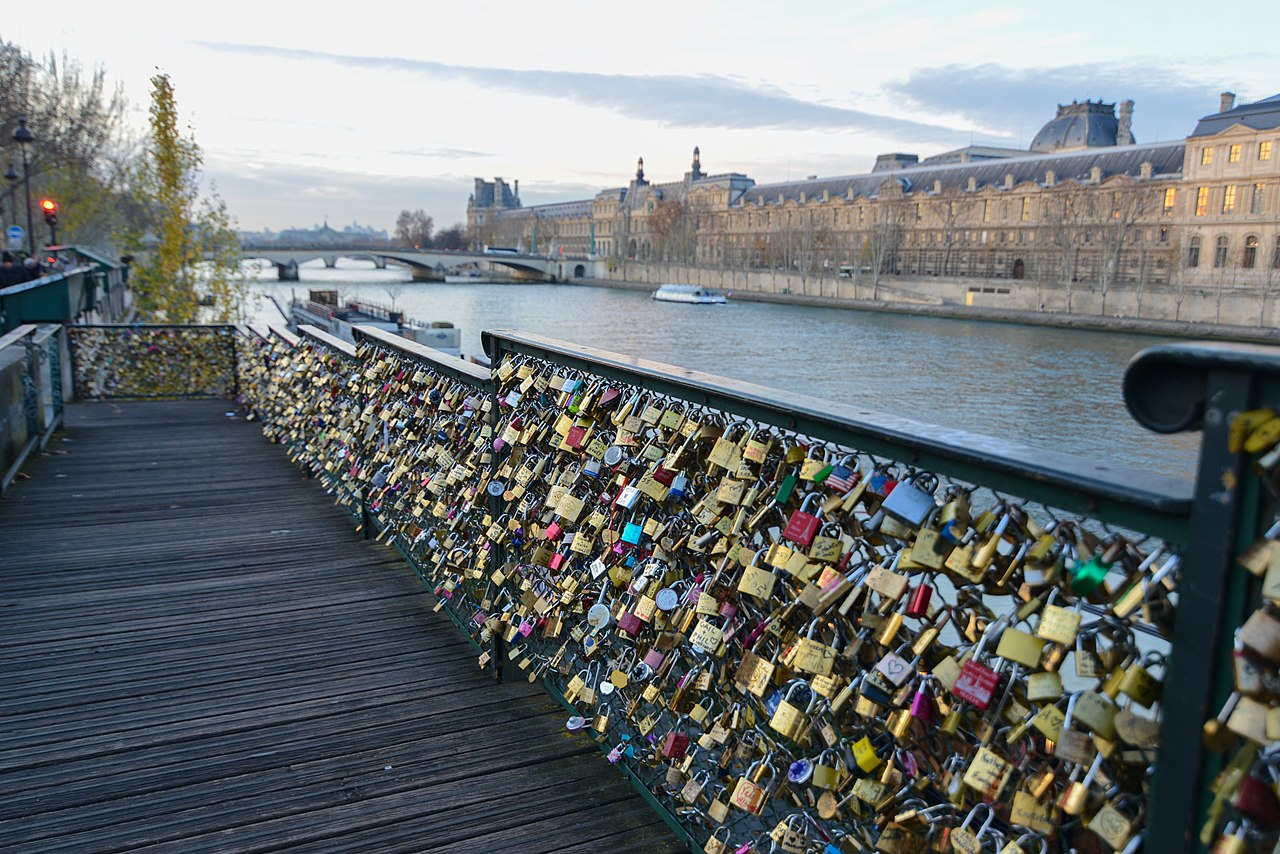 Jorge Láscar, CC BY 2.0, Wikimedia Commons
Jorge Láscar, CC BY 2.0, Wikimedia Commons
The Lock Bridge Collapse
In 2015, shortly after one last love-struck couple hung their lock, the railing collapsed. The government decided the fun was over, and they removed more than a million padlocks off the railing and repaired it. Signs were posted prohibiting the love lock tradition to continue—but don't worry, there's other bridges in Paris that have taken its place.
Paracel Archipelago, China
A land-disputed island off the coast of China, known for its copious sea life, finally opened for tourism in 2016. But not long after, visitors began hunting the various forms of wildlife on and around the island—including a number of endangered species.
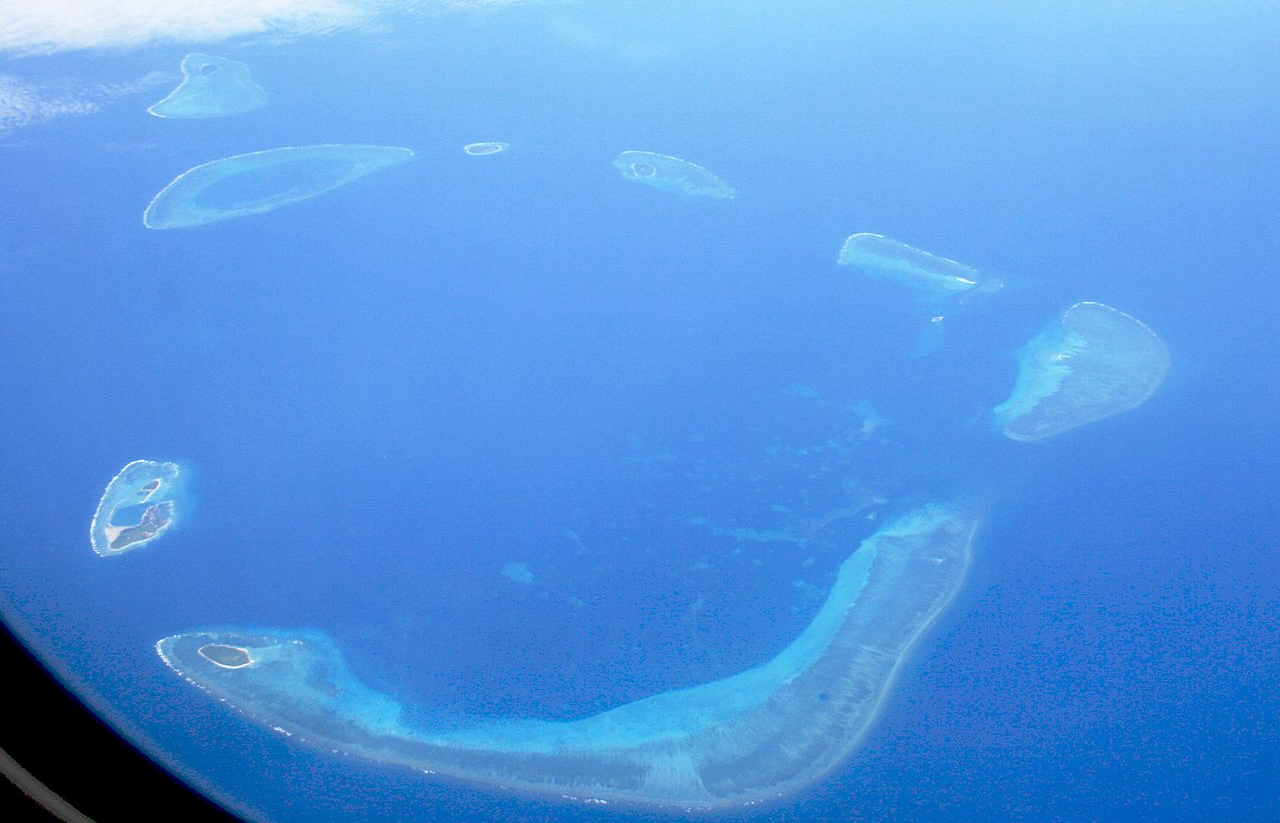 Swaminathan, Wikimedia Commons
Swaminathan, Wikimedia Commons
Parcel Island Hunters
Social media posts quickly emerged of people eating endangered sea creatures right out of the water, brutally attacking wildlife, and plucking out entire pieces of living, colorful coral to take home.
A ridiculous number of fines were handed out and security measures had to be put in place to control tourism.
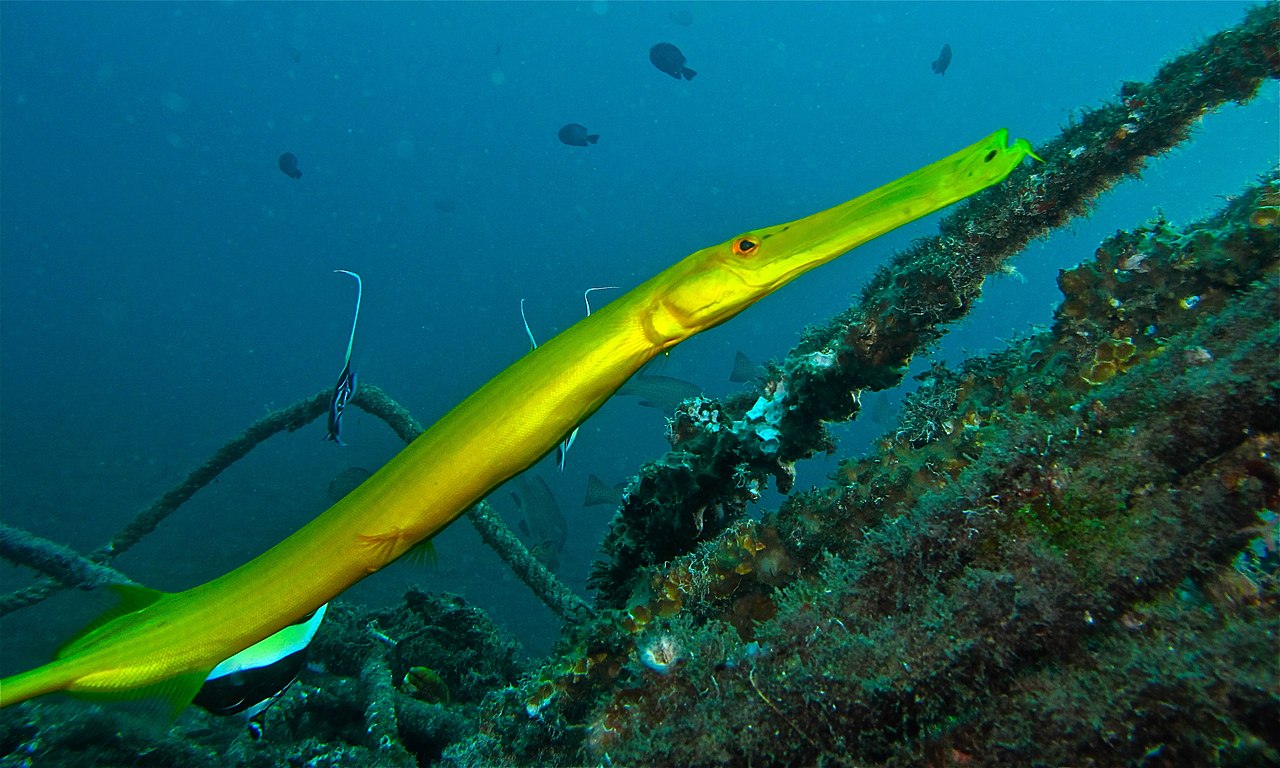 Bernard DUPONT, CC BY-SA 2.0, Wikimedia Commons
Bernard DUPONT, CC BY-SA 2.0, Wikimedia Commons
The Underwater Amazon, Indonesia
Indonesia boasts one of the world’s most spectacular coral reefs, nicknamed “the underwater Amazon.” Known as an “untouched beach paradise,” the reef has been carefully created by nature for hundreds of years, and plays an integral role in the local economy.
For miles around the coast, boats are not permitted to drop anchors or even get close to the coral.
The Coral Crash
In 2017, a 297-foot (90.6 meter) cruise ship, the MS Caledonian Sky, crashed into the reef, doing significant damage to nearly 140,000 square feet of the delicate ecosystem.
After causing a whole slew of problems as a result, including irreparable repair to the most biodiverse reef in the world, the captain of the ship was charged.
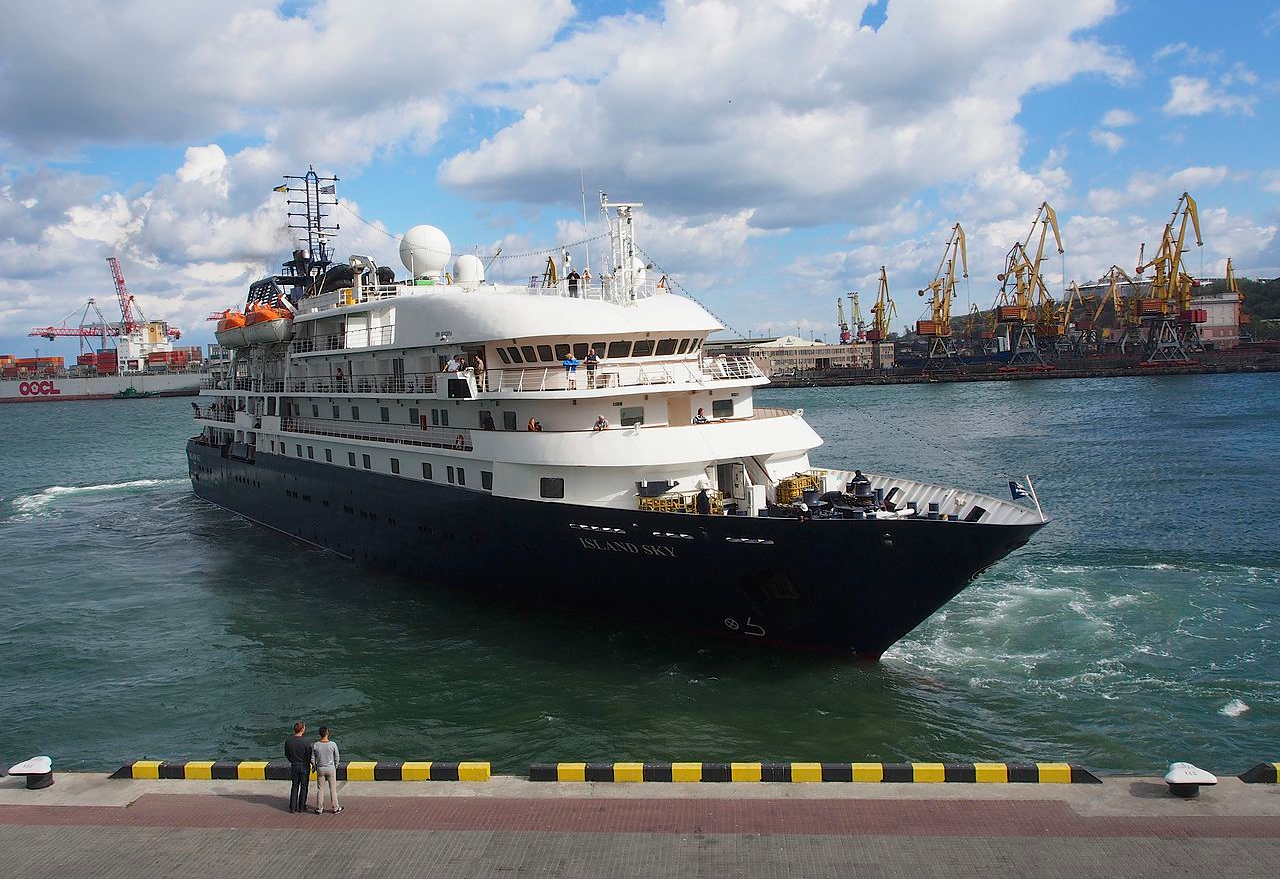 Clay Gilliland, CC BY-SA 2.0, Wikimedia Commons
Clay Gilliland, CC BY-SA 2.0, Wikimedia Commons
Devil's Hole Pupfish, California
The pupfish is an extremely rare fish that is noted for being found in extreme and isolated areas. In 2013, the species was close to extinction, with less than 100 believed to be left in existence.
A handful of these tiny endangered fish happened to live in Devil’s Hole in Death Valley National Park—until some dumb tourists spent the night.
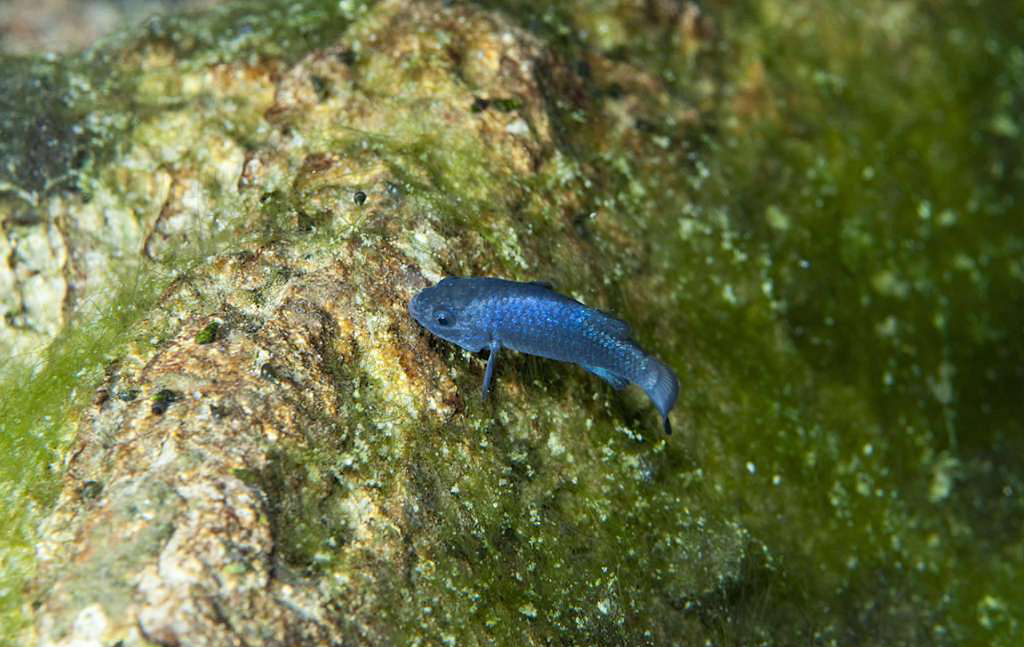 USFWS Pacific Southwest Region, Flickr
USFWS Pacific Southwest Region, Flickr
The Devil’s Hole Rampage
An unruly group of tourists got tipsy and went on a rampage destroying things in and around the Devil’s Hole—with a pupfish being one the victims.
The culprits were charged for a number of offences—the pupfish’s demise being a big one.
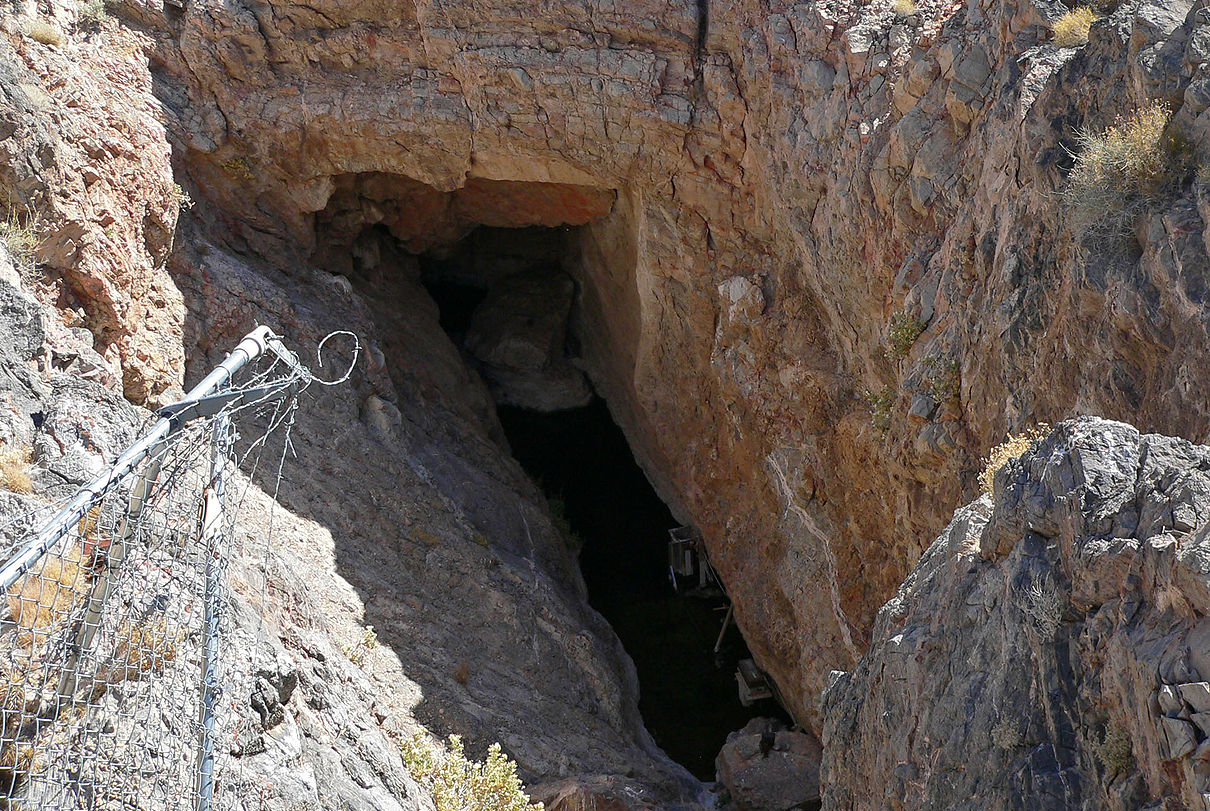 Stan Shebs, CC BY-SA 3.0, Wikimedia Commons
Stan Shebs, CC BY-SA 3.0, Wikimedia Commons
Easter Island
Easter Island is an island in Chile famous for its nearly 1,000 extant monumental statues, called moai, which were created by the early Rapa Nui people. The whole island is a UNESCO World Heritage Site.
The Easter Island Vandal
In 2008, a Finnish tourist named Marko Kulju decided that he wanted a souvenir from Easter Island. But instead of choosing a tacky shot glass like everyone else, he broke off the earlobe of one of the statues and pocketed one of the pieces. The rest of the statue started to crumble as a result.
The man was charged a significant fine and banned from the island for three years—which many say is far too lenient for deliberately ruining one of the most iconic landmarks in the world.
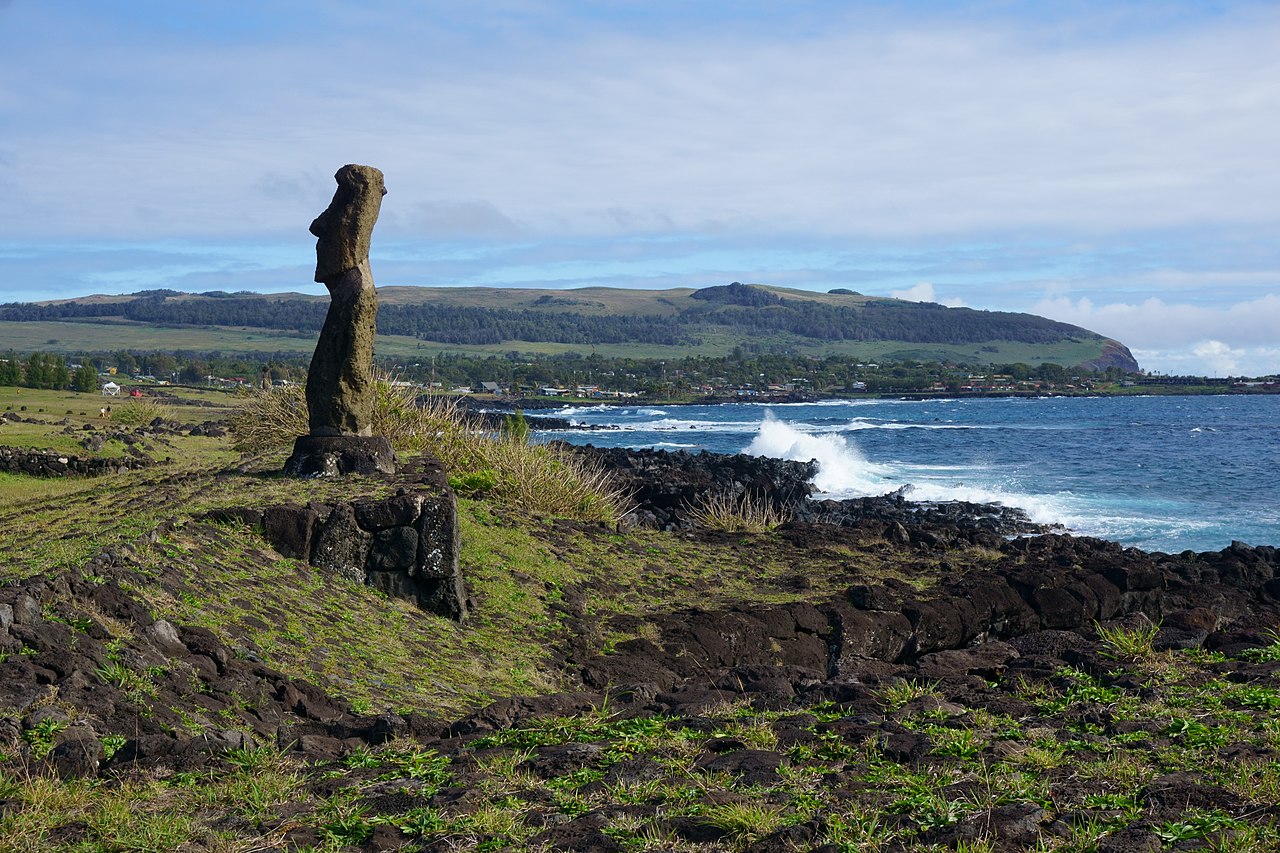 kallerna, CC BY-SA 4.0, Wikimedia Commons
kallerna, CC BY-SA 4.0, Wikimedia Commons
Various National Parks
In 2014, a woman named Casey Nocket gained national attention after making her way through eight national parks, vandalizing bits and pieces of each and every one of them—mostly with painted graffiti.
She even had the nerve to post photos of her vandalism to her Instagram account—which ultimately led to her arrest. Her story went viral.
The Casey Nocket Scandal
Ultimately, Nocket signed a plea bargain and ended up with two years’ probation, a ban from all National Parks for those two years, 200 hours of community service, and she had to write an apology letter.
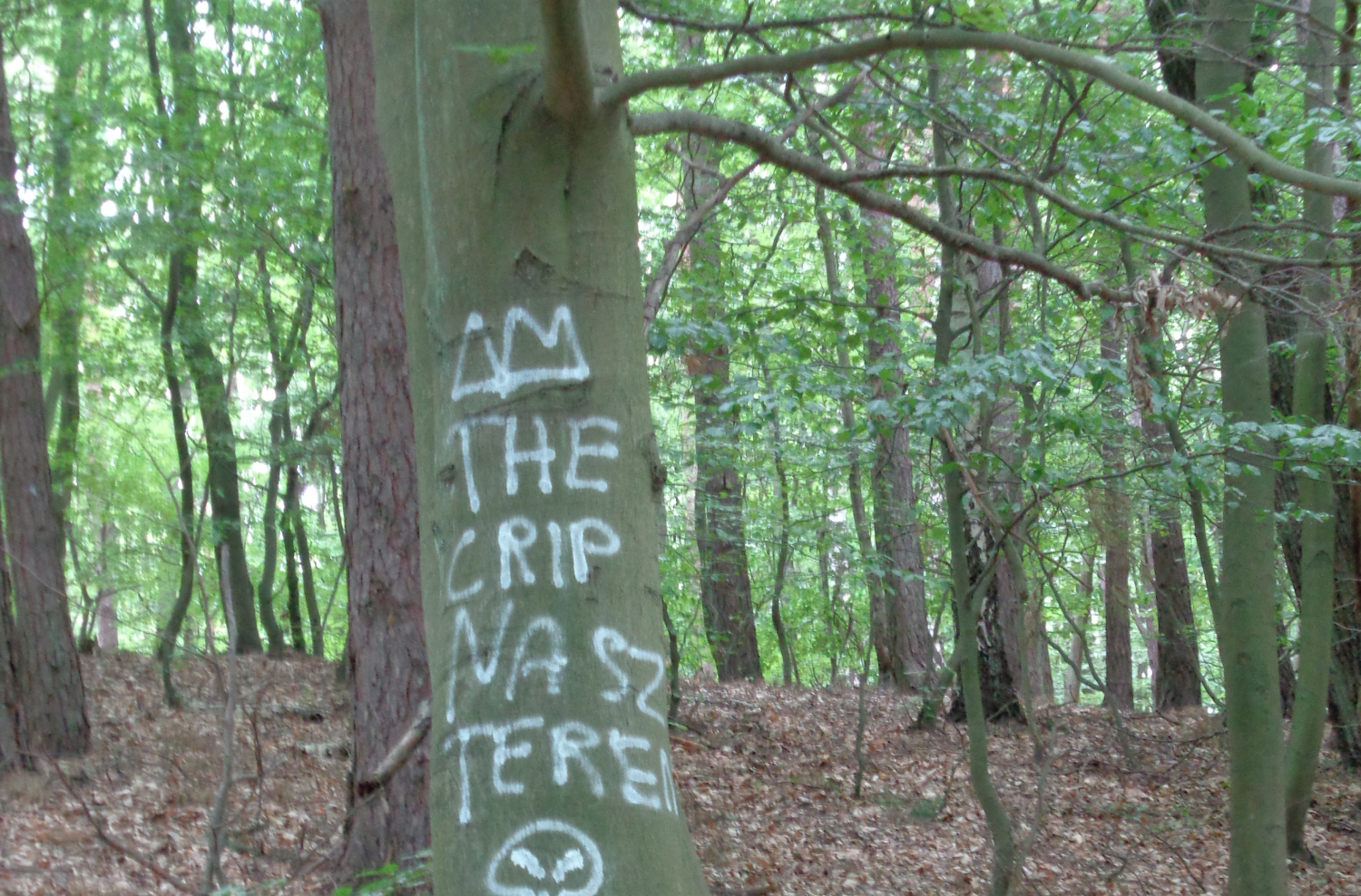 Mariochom, CC BY-SA 4.0, Wikimedia Commons
Mariochom, CC BY-SA 4.0, Wikimedia Commons
The Loggia Dei Militi Statue, Italy
The Loggia dei Militi is a historical building in northern Italy, built way back in 1282. Sitting out front, is an 18th-century marble statue of the two Hercules.
While there is a sign reminding visitors not to touch, there is nothing more than a rope holding back curious tourists.
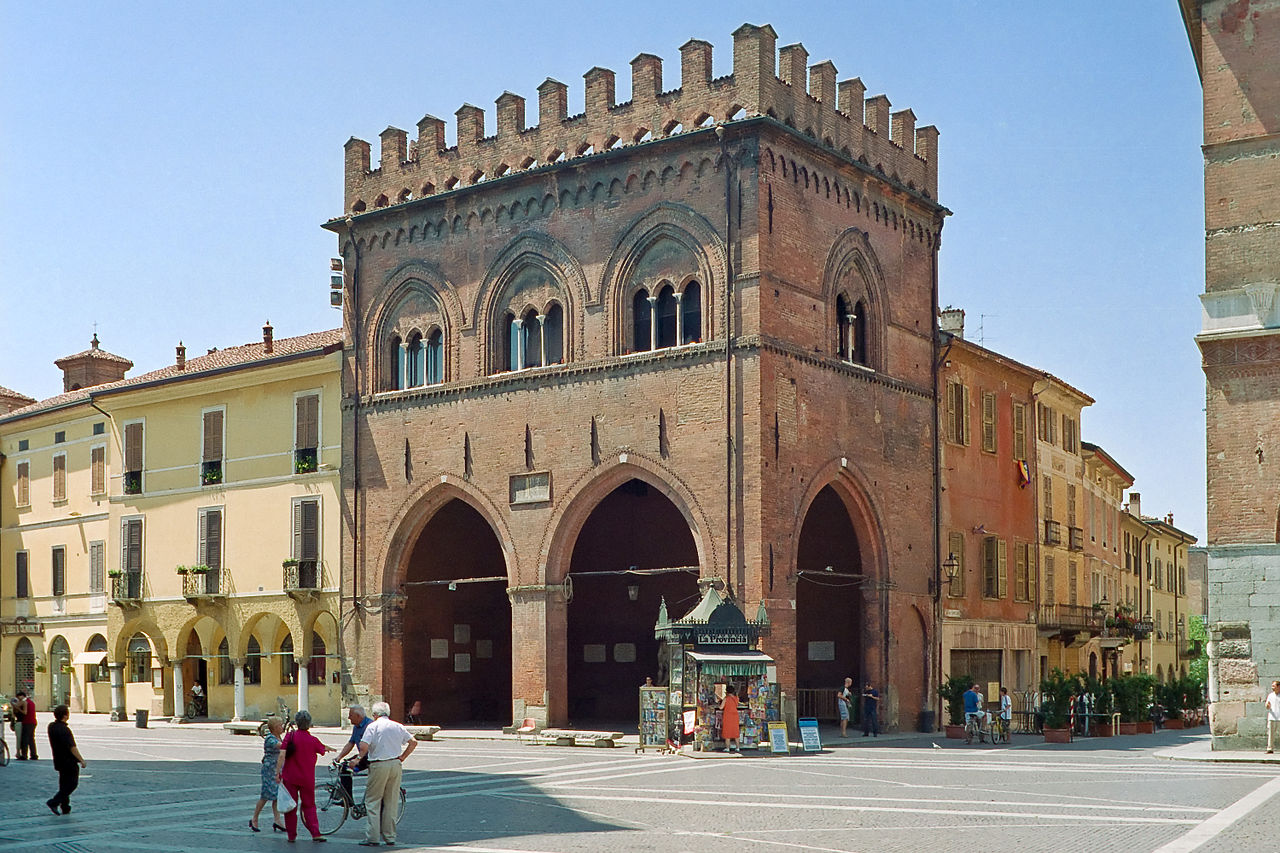 David Nicholls, CC BY-SA 2.0, Wikimedia Commons
David Nicholls, CC BY-SA 2.0, Wikimedia Commons
The Statue Selfie
In 2015, two tourists climbed on top of the statue to take a selfie. Their weight caused the marble crown to fall off the top of the statue, shattering to pieces when it hit the floor.
The two men were apprehended and charged with the incident.
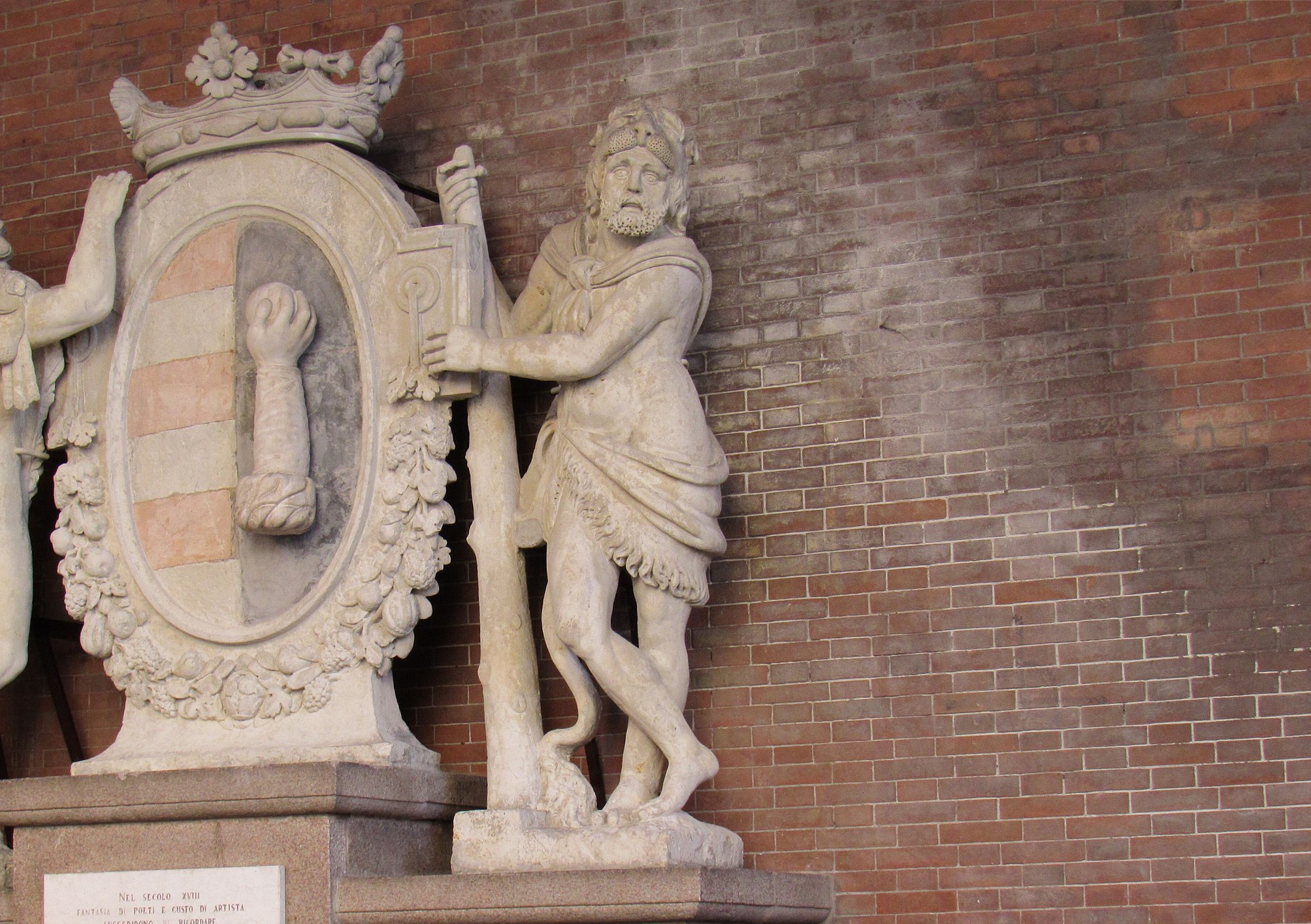 Giorgia Lottici, CC BY-SA 4.0, Wikimedia Commons
Giorgia Lottici, CC BY-SA 4.0, Wikimedia Commons
The Tikal Temple II, Guatemala
The Tikal Temple II is a Mesoamerican pyramid in northern Guatemala. The massive structure dates back to the 8th century AD, and is filled with ancient graffiti that depicts a rich history of burials and offerings.
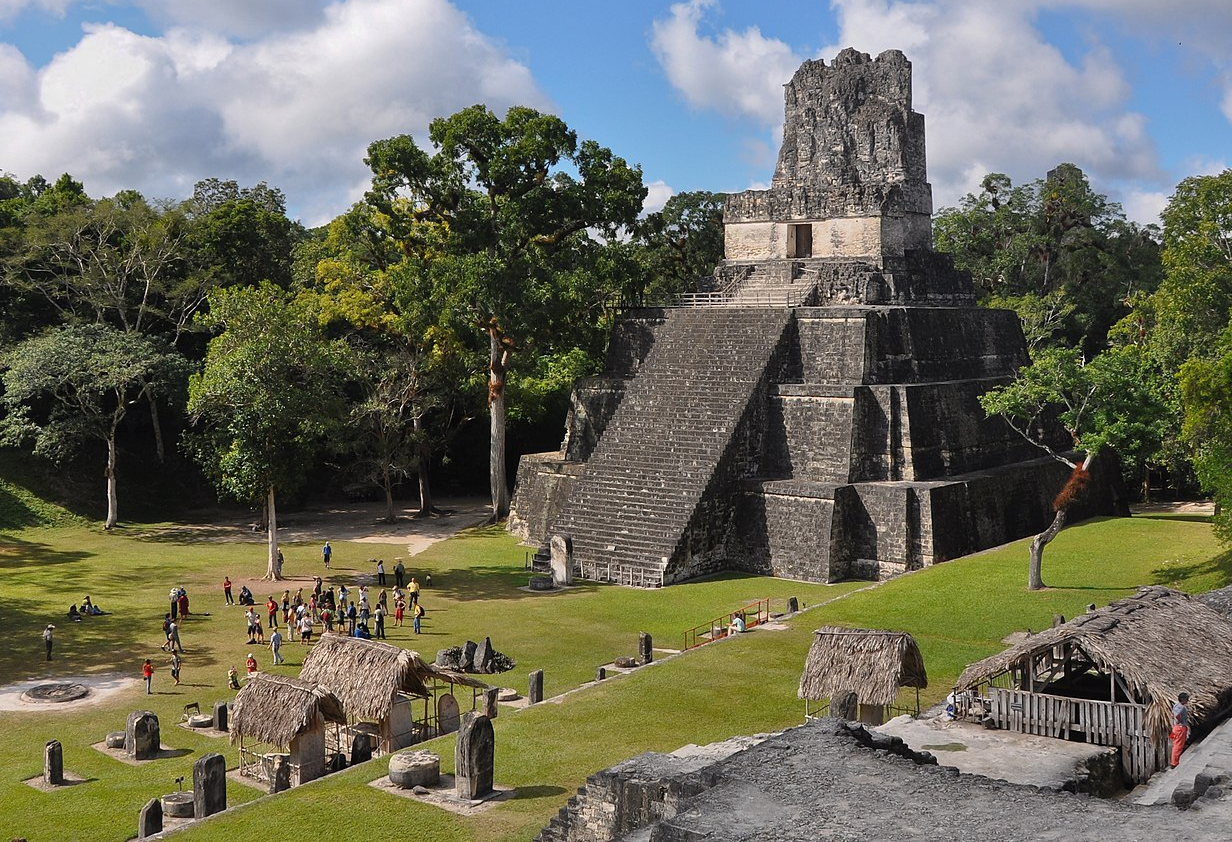 Mike Vondranderivative, CC BY 2.0, Wikimedia Commons
Mike Vondranderivative, CC BY 2.0, Wikimedia Commons
The Tikal Temple II Vandals
In 2019, a pair of tourists were caught on camera carving their initials onto the wall of the sacred structure. They etched “A+T,” and then had the nerve to get offended when a local guide politely confronted them.
The pair was handed a hefty fine, and more signs were posted reminding tourists of the consequences of vandalism.
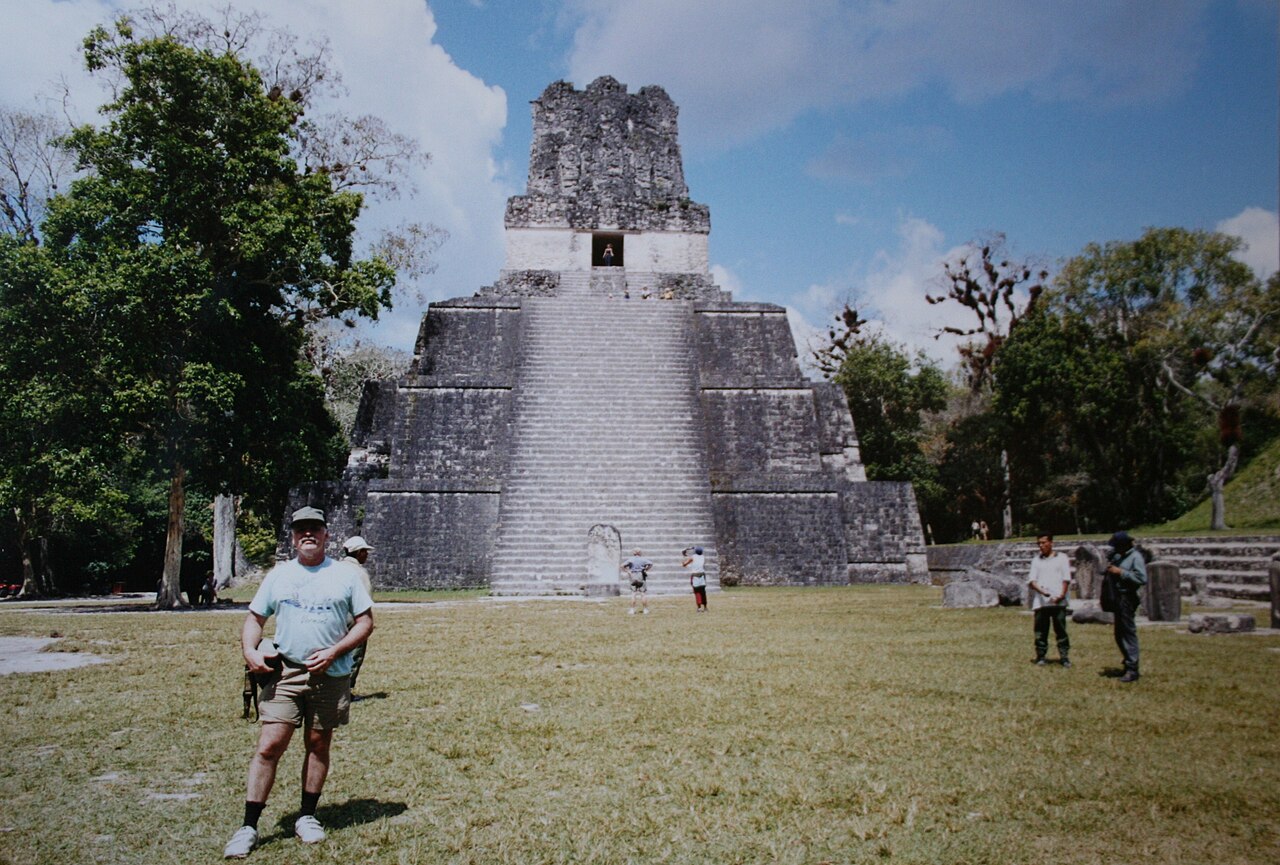 Gary Todd, CC0, Wikimedia Commons
Gary Todd, CC0, Wikimedia Commons
The Luxor Temple, Egypt
The Luxor Temple is a large Ancient Egyptian temple complex that was constructed way, way back in 1400 BCE. It is a UNESCO World Heritage Site.
In 2013, a 15-year-old Chinese tourist carved “Ding Jinhao was here” right into the iconic 3,500-year-old hieroglyphics of the Luxor Temple, not realizing the magnitude of his actions.
The Temple Carving
This act of disrespect garnered international attention and is now known as the “Ding Jinhao engraving scandal.” His parents issued a public apology, and his school was hacked and defaced by angry onlookers seeking justice. The consequences to his actions bled into his personal life, causing so much distress that the government actually figured he had suffered enough, and chose not to lay charges.
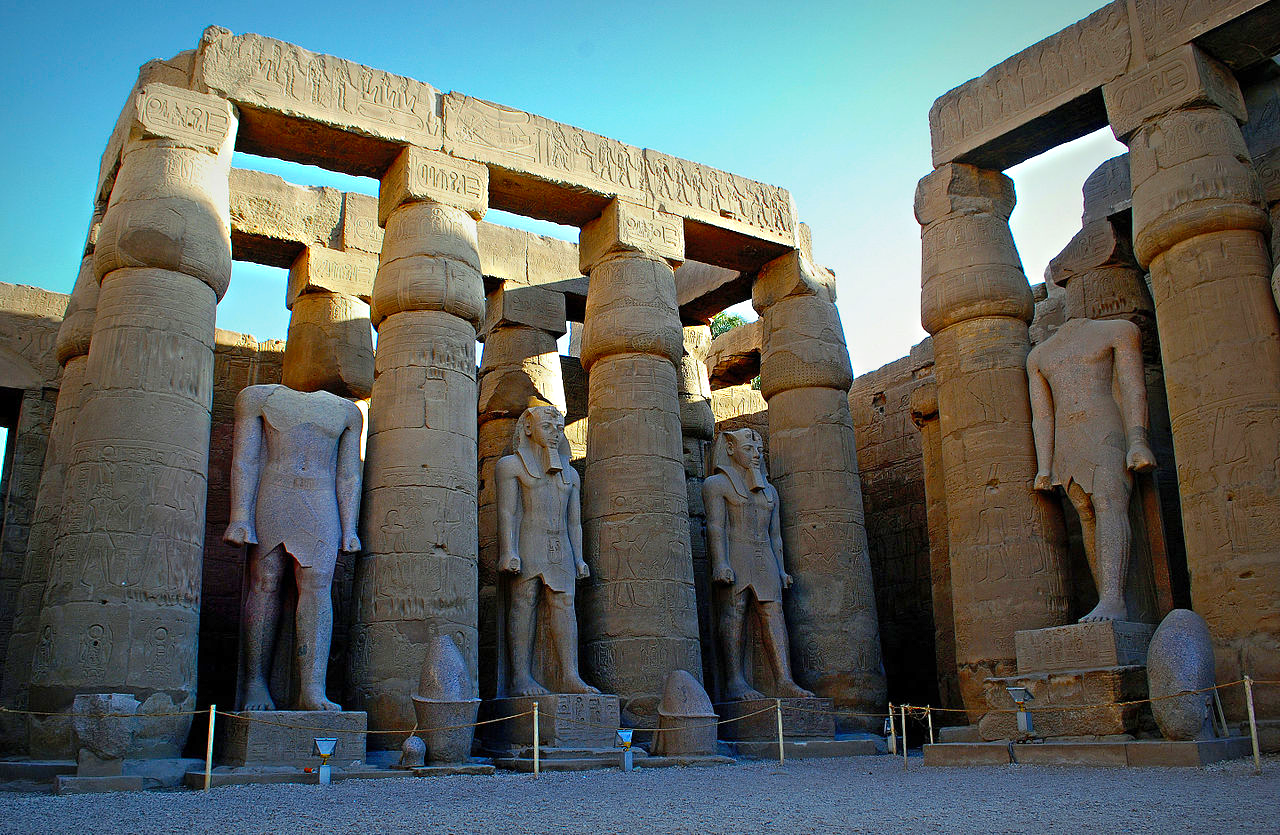 Mohammed Moussa, CC BY-SA 4.0, Wikimedia Commons
Mohammed Moussa, CC BY-SA 4.0, Wikimedia Commons

